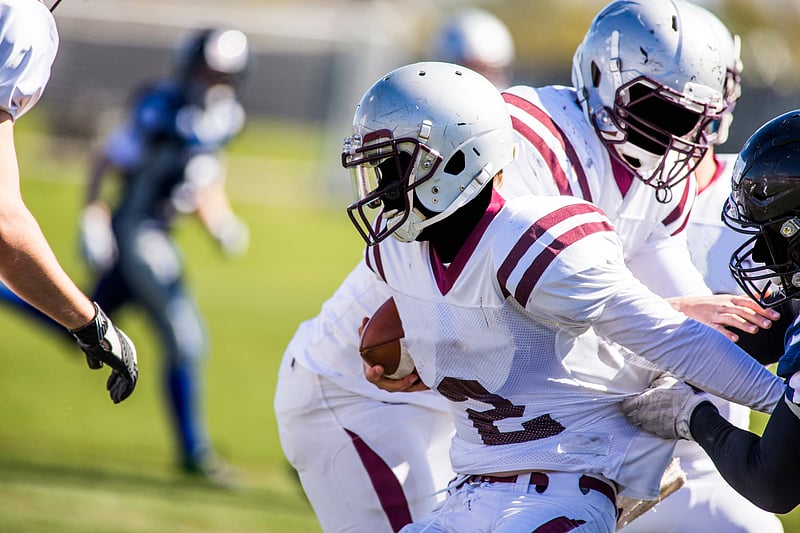Get Healthy!

- Denise Mann
- Posted August 11, 2023
Playing Football Might Raise Parkinson's Risk
The link between pro football and the risk for a neurodegenerative disease called chronic traumatic encephalopathy (CTE) is well known, and now a new study suggests that football may also up the risk for Parkinson's disease, even among past high school and college players.
"Parkinson's disease has been commonly reported in boxers, but we have not explored this link in great detail in football,"said study author Michael Alosco, an associate professor of neurology at Boston University Chobanian & Avedisian School of Medicine. "This is additional evidence that shows a link between football and later-in-life neurologic problems."
The common denominator is likely blows to the head.
Parkinsonism is an umbrella term for a group of neurological disorders that result in movement problems. Parkinson's disease is the most common cause. Symptoms include tremors, stiffness, a shuffling gait and slow movement.
Exactly what causes Parkinson's disease is not fully understood, but a combination of genetic and environmental factors likely play a role, according to the Michael J. Fox Foundation for Parkinson's Research.
For the study, researchers evaluated 1,875 athletes, including 729 men who played football, predominantly at the amateur level, and 1,146 men who played other sports. All of the participants were enrolled in Fox Insight, an online study of people with and without Parkinson's disease sponsored by the Michael J. Fox Foundation. Participants who did not have Parkinson's disease told researchers they were concerned about their risk.
The researchers found that men with a history of playing organized tackle football were 61% more likely to be diagnosed with parkinsonism or Parkinson's disease. The findings held even after researchers controlled for other known risk factors.
The longer men played, the higher these odds, the study showed.
Football players were around age 68, on average, and had played for more than four seasons, typically at the youth or high school level. Of the football players, 89% were diagnosed with parkinsonism or Parkinson's disease.
Now, Alosco and his colleagues plan to continue their research and educate the public on these potential risks.
"There are many ex-football players who don't have Parkinson's disease or CTE,"he noted. "These problems happen because of a lot of different risk factors that come together."
There is an important role for prevention, Alosco said.
"The best way to reduce risk is to delay playing tackle football and removing head impact from practice,"he said.
The findings were published Aug. 11 in JAMA Network Open.
Dr. Roy Alcalay, an associate professor of clinical neurology at Columbia University Irving Medical Center in New York City, reviewed the findings.
"The association between Parkinson's disease and brain injury has been studied in boxing," Alcalay said, adding that former heavyweight champion Muhammad Ali was widely reported to have Parkinson's disease.
"The new study suggests that football may also increase these risks and adds to the data that football playing can be dangerous,"he said. "The concerning thing is that even non-professional players were at a higher risk for Parkinson's disease in this study, and there aren't early red flags to say 'if this happens, you should stop playing or see a neurologist.'"
More information
The Michael J. Fox Foundation for Parkinson's Research has more about Parkinson's disease.
SOURCES: Michael Alosco, PhD, associate professor, neurology, Boston University Chobanian & Avedisian School of Medicine; Roy Alcalay, MD, associate professor, clinical neurology, Columbia University Irving Medical Center, New York City, JAMA Network Open, Aug. 11, 2023






